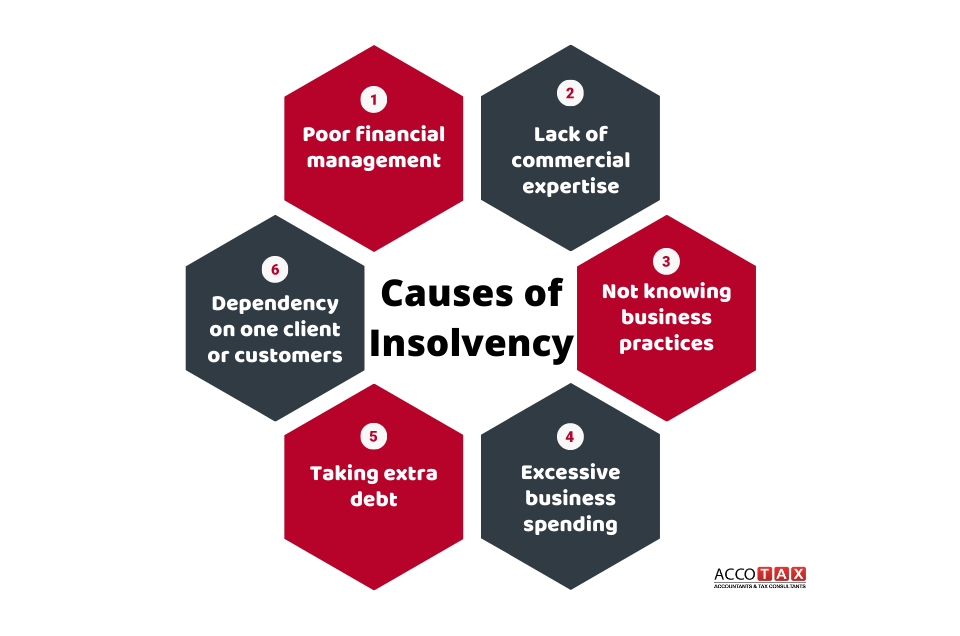Insolvency Practitioner Fundamentals Explained
Insolvency Practitioner Fundamentals Explained
Blog Article
Insolvency Practitioner - An Overview
Table of ContentsInsolvency Practitioner - QuestionsThe smart Trick of Insolvency Practitioner That Nobody is DiscussingGet This Report about Insolvency Practitioner7 Simple Techniques For Insolvency PractitionerLittle Known Questions About Insolvency Practitioner.Rumored Buzz on Insolvency Practitioner4 Simple Techniques For Insolvency Practitioner
Bankruptcy is when responsibilities are higher than the worth of the business, or when a borrower can not pay the debts they owe. A firm can come to be bankrupt due to a number of scenarios that cause poor capital. When confronted with bankruptcy, an organization or person can call financial institutions directly and restructure debts to pay them off.Service proprietors may call creditors directly and restructure financial debts right into even more manageable installments. Financial institutions are typically responsive to this strategy since they want to be settled and stay clear of losses, also if the repayment is on a postponed routine.
What Does Insolvency Practitioner Do?
The proprietor produces a proposition detailing just how the debt might be reorganized utilizing price reductions or other plans for support. The proposition reveals lenders just how business may produce adequate capital for successful operations while paying its debts. Commonly, a forgiven financial obligation might be considered earnings by the Irs (INTERNAL REVENUE SERVICE).

The Basic Principles Of Insolvency Practitioner
Business might finish up paying large amounts of cash in damages and be overcome operations. When operations discontinue, so does the company's earnings. Lack of income causes accounts payable and lenders asking for cash owed to them. Some companies end up being bankrupt because their goods or services don't advance to fit customers' altering demands.
Expenditures go beyond earnings and costs continue to be unpaid. Cash-flow insolvency happens when a business has the possessions to cover their financial debts but they are in the wrong type, such as real estate instead of liquid funds. Balance-sheet insolvency, on the other hand, indicates a lack of possessions in any type of type to cover financial obligations.
The internal revenue service states that an individual is bankrupt when the overall responsibilities surpass complete possessions. A bankruptcy, on the other hand, is an actual court order that depicts just how an insolvent individual or business will pay off their financial institutions, or just how they will certainly market their properties in order to make the repayments.
The Main Principles Of Insolvency Practitioner

Comprehending the elements that can lead to insolvency, such as overspending, can help you protect against insolvency and its repercussions.
Some Ideas on Insolvency Practitioner You Need To Know
It is popular that directors and officers of companies (and managers of minimal responsibility companies) owe fiduciary tasks to their organizations and their investors (or participants). These fiduciary obligations are specified by state laws and, though there are variations from one state to another, they commonly include a task of commitment and a responsibility of care.
The duty of care needs directors and policemans to exercise persistance, to make go to my site educated choices, and to act in great faith to ensure that their actions remain in the most effective passion of the firm. Though past the range of this conversation, some states allow these duties to be restricted either by so keeping in mind in the business documents or conforming with other requirements.
Insolvency Practitioner - The Facts
Many states define bankruptcy in two ways( 1) when a company's responsibilities come to be more than the amount of its assets or (2) when the company ends up being incapable to pay its debts as they become dueand accept both meanings (Insolvency Practitioner). The shift in obligations happens since when a company is bankrupt, there is no value in the company past that owed to the business's creditors to ensure that the equity holders no more have an economic risk in the company
Beware regarding providing investors preferential treatment at the expense of creditors (e.g., licensing and moneying a returns or a supply redemption). Be cautious concerning favoritism between courses of investors. Make reasonable efforts to learn all the realities before taking a particular training course of action; directors must really believe that any type of choices made remain in the finest interests of the firm in its entirety (i.e., choices will Read Full Report certainly be assessed in hindsight taking into account the result of such activities on the company).
In any kind of personal bankruptcy or bankruptcy proceeding, repayments made to specific creditors at the expense of various other lenders can be clawed back, particularly if there is some connection between the business and the lender. Think about suggesting at a yearly shareholder conference (or any various other meeting of stockholders) a resolution affirming that all previous company decisions and activities taken by the supervisors and officers of the company were absorbed good confidence after an exercise of reasonable care.
The Ultimate Guide To Insolvency Practitioner
Totally disclose any type of individual or company partnerships with parties beyond of purchases including the corporation to avoid the look of a dispute of interest. In reviewing potential fund increasing deals or a sale of properties of the troubled company, be aware that these purchases may be scrutinized later because of any subsequent growth of supervisors' fiduciary obligations to consist of financial institutions.
Report this page